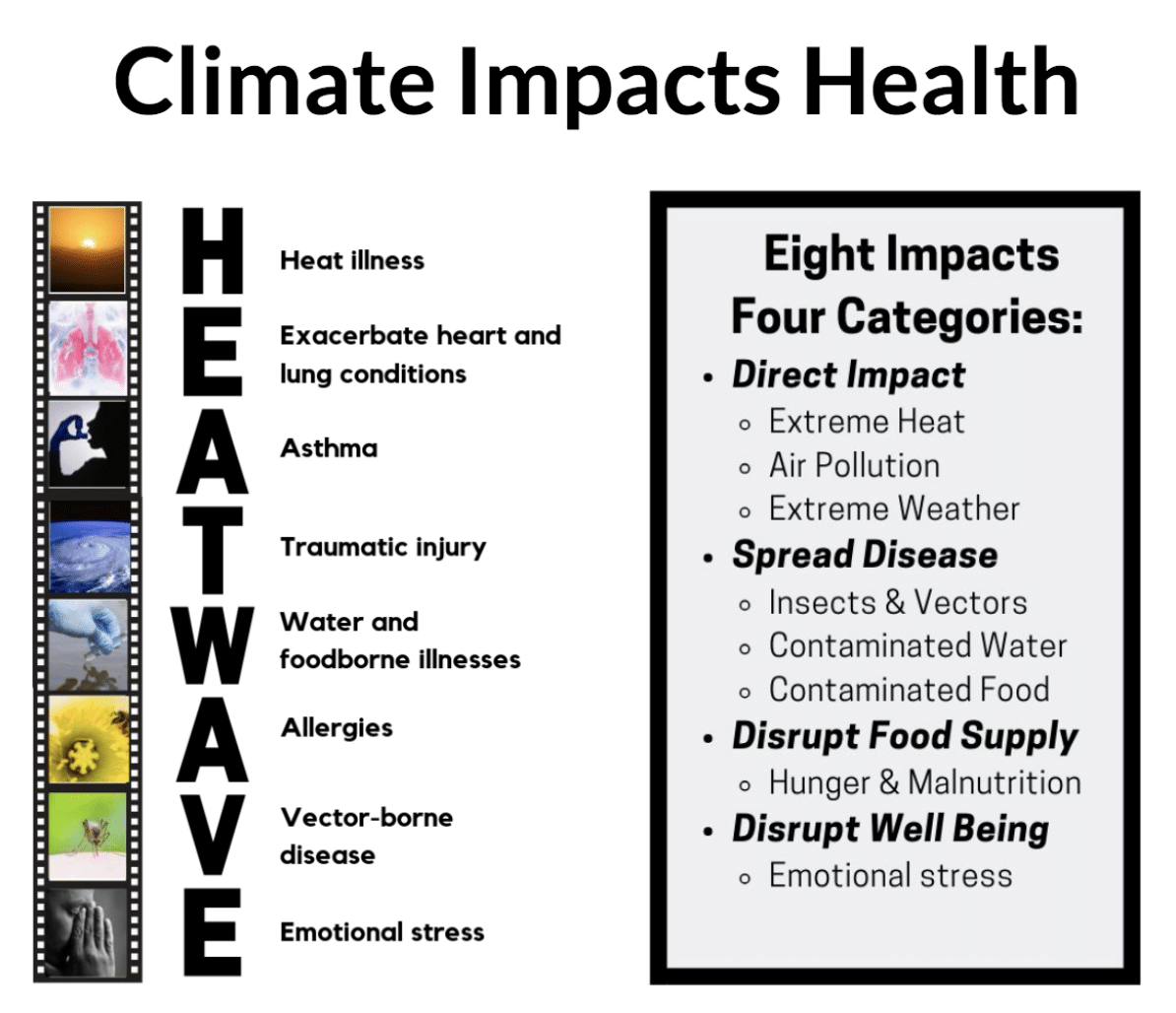On November 10, the Southern Alliance for Clean Energy and Florida Climate Voices hosted a crucial discussion on climate change and impacts on our health.
Susan Glickman | November 12, 2020 | Climate Change, Extreme Weather, Florida, Sea Level RiseAs I write this, Hurricane Eta is bearing down where I live on Florida’s west coast. Yet again, we have another record-breaking season which wraps up the end of November. Along with this extreme weather, we are already seeing threats to our health in Florida from climate change – with sea-level rise, killer heat, and vector-borne diseases. It is clear that climate change impacts are already being felt, with vulnerable populations being impacted first and worst.
That’s why more than 70 U.S. major medical groups declared that climate change is “a true public health emergency” with this call to action. Health risks posed by climate change already disproportionately harm marginalized groups including people with disabilities, low-income families and individuals – and the ongoing climate crisis is likely to deepen those disparities.
Without immediate adaption and mitigation efforts to curb carbon emissions from fossil fuel plants and energy waste, we are only putting our health and the health of future generations at greater risk.
On November 10, the Southern Alliance for Clean Energy and Florida Climate Voices hosted a crucial discussion on climate change and health. As SACE’s Florida Director, I was pleased to moderate the informative conversation with Congresswoman Donna Shalala, who currently represents Florida’s 27th District which includes the city of Miami and surrounding municipalities in Miami-Dade County. She is the longest-serving Secretary of Health and Human Services in U.S. history and has been elected to seven national academies, including the National Academy of Medicine, the American Academy of Arts and Sciences, and the National Academy of Education. Health experts Dr. Cheryl Holder, with Florida Clinicians for Climate Action, and Dr. Rachel Licker, with the Union of Concerned Scientists. Additionally, Mario Ariza, author of the recently released book Disposable City: Miami’s Future on the Shores of Climate Catastrophe was on hand for the Q&A session.
Threats
The panel initially discussed threats to both our physical and mental health. This slide from Florida Clinicians for Climate Action highlights ways in which our health and well being will be impacted and disrupted as the planet continues to warm.

Dr. Licker, presented slides from the recently released Union of Concerned Scientists report, Killer Heat in the United States: Climate Choices and the Future of Dangerously Hot Days, and showed models for the amount of extreme heat days Florida will face if action is not taken to curb carbon emissions. For more on the report, watch our webinar on the report as it relates to the Southeast.
Solutions
Among other solutions, there was a consensus on the panel that reducing pollution will minimize threats to our health. Right now, there is an opportunity to reduce carbon pollution and simultaneously help Florida families save money.
Florida regulators are discussing changes to the Florida Energy Efficiency Conservation Act (FEECA). The implication of these changes will be significant to addressing the unnecessary energy waste in Florida homes and reducing energy bills for hard-working Florida families and businesses. Take action and send a letter to the Florida Public Service Commission. Ask them to reduce roadblocks to energy efficiency in Florida.
By using fossil fuels to power our cars and buildings, we have committed ourselves to a certain amount of climate change. But there is hope, although we have a short window, and the window is now. We can move forward by implementing policies and strategies that push us towards the clean energy economy in which we would hope to live. Every sector, from energy to transportation, must come together to impact change and find equitable climate solutions, because climate solutions are health solutions.